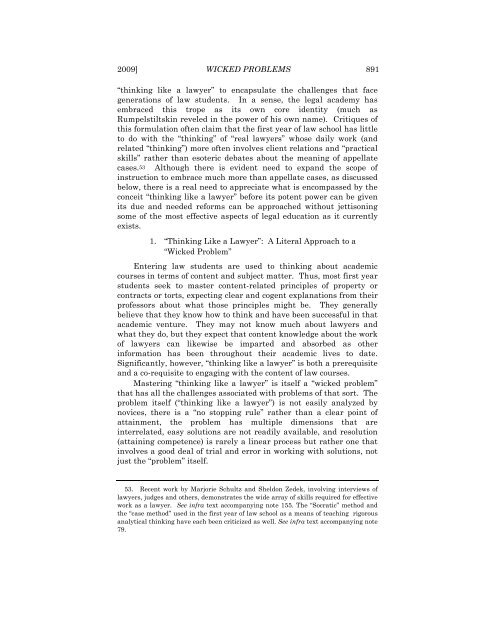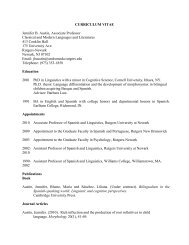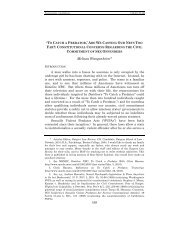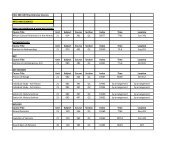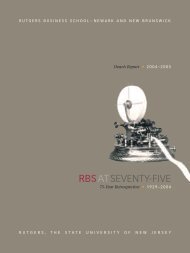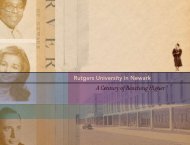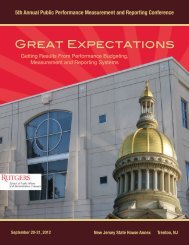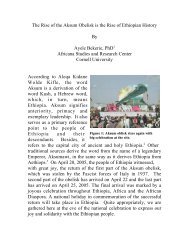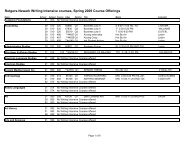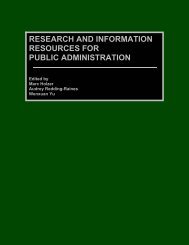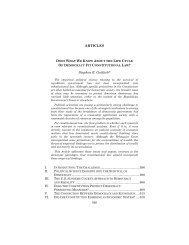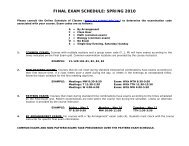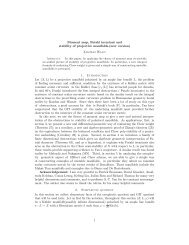Reframing Legal Education's - Rutgers Law Review
Reframing Legal Education's - Rutgers Law Review
Reframing Legal Education's - Rutgers Law Review
You also want an ePaper? Increase the reach of your titles
YUMPU automatically turns print PDFs into web optimized ePapers that Google loves.
2009] WICKED PROBLEMS 891“thinking like a lawyer” to encapsulate the challenges that facegenerations of law students. In a sense, the legal academy hasembraced this trope as its own core identity (much asRumpelstiltskin reveled in the power of his own name). Critiques ofthis formulation often claim that the first year of law school has littleto do with the “thinking” of “real lawyers” whose daily work (andrelated “thinking”) more often involves client relations and “practicalskills” rather than esoteric debates about the meaning of appellatecases.53 Although there is evident need to expand the scope ofinstruction to embrace much more than appellate cases, as discussedbelow, there is a real need to appreciate what is encompassed by theconceit “thinking like a lawyer” before its potent power can be givenits due and needed reforms can be approached without jettisoningsome of the most effective aspects of legal education as it currentlyexists.1. “Thinking Like a <strong>Law</strong>yer”: A Literal Approach to a“Wicked Problem”Entering law students are used to thinking about academiccourses in terms of content and subject matter. Thus, most first yearstudents seek to master content-related principles of property orcontracts or torts, expecting clear and cogent explanations from theirprofessors about what those principles might be. They generallybelieve that they know how to think and have been successful in thatacademic venture. They may not know much about lawyers andwhat they do, but they expect that content knowledge about the workof lawyers can likewise be imparted and absorbed as otherinformation has been throughout their academic lives to date.Significantly, however, “thinking like a lawyer” is both a prerequisiteand a co-requisite to engaging with the content of law courses.Mastering “thinking like a lawyer” is itself a “wicked problem”that has all the challenges associated with problems of that sort. Theproblem itself (“thinking like a lawyer”) is not easily analyzed bynovices, there is a “no stopping rule” rather than a clear point ofattainment, the problem has multiple dimensions that areinterrelated, easy solutions are not readily available, and resolution(attaining competence) is rarely a linear process but rather one thatinvolves a good deal of trial and error in working with solutions, notjust the “problem” itself.53. Recent work by Marjorie Schultz and Sheldon Zedek, involving interviews oflawyers, judges and others, demonstrates the wide array of skills required for effectivework as a lawyer. See infra text accompanying note 155. The “Socratic” method andthe “case method” used in the first year of law school as a means of teaching rigorousanalytical thinking have each been criticized as well. See infra text accompanying note79.


